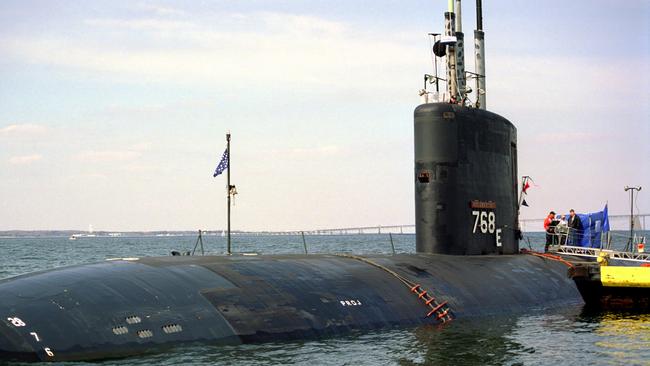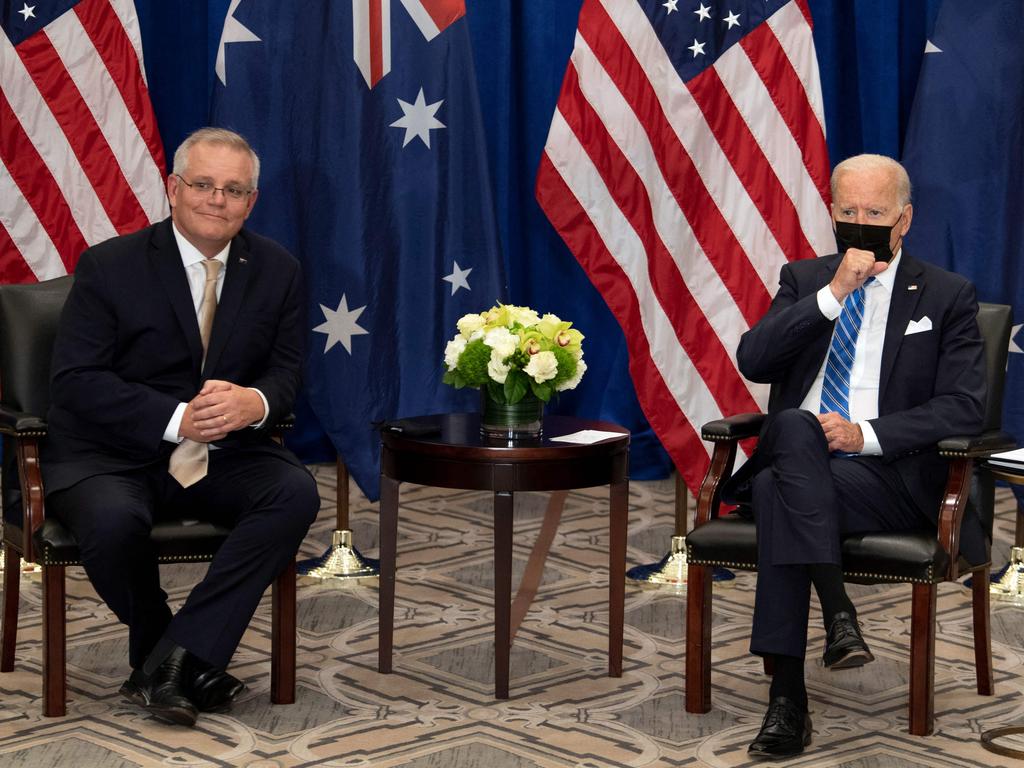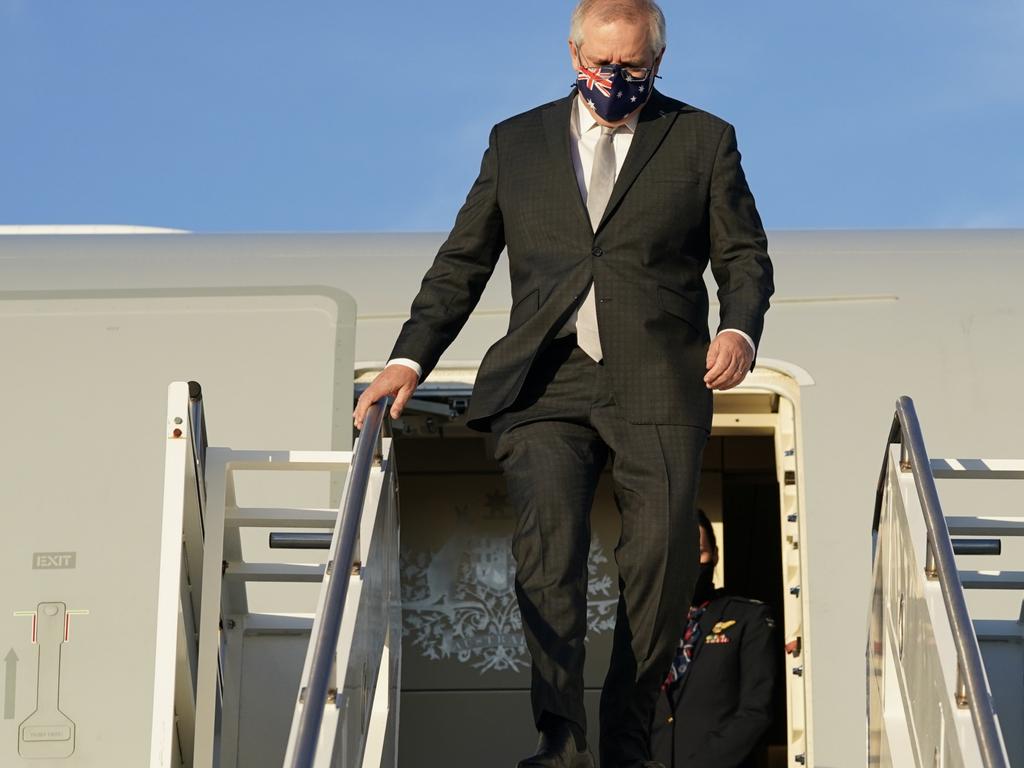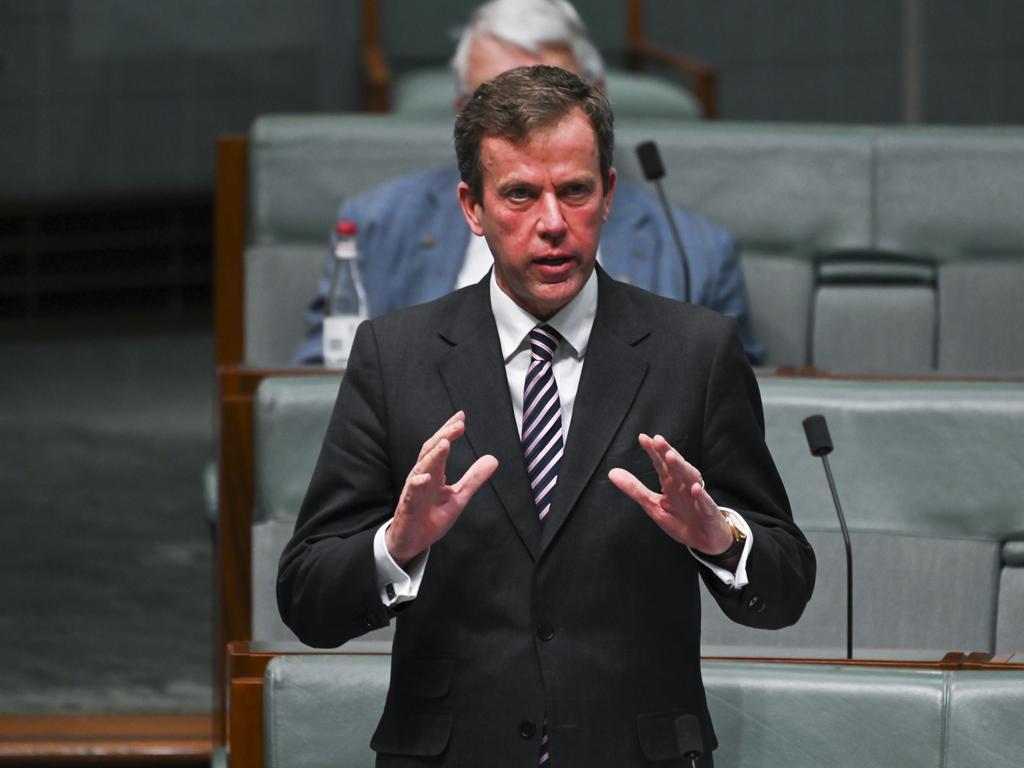
Let’s deal with the French first because it is clear cut. What Scott Morrison did with France was ruthless, offensive and unavoidable. There is no problem with Labor exploiting the fallout providing people realise its argument is worthless and fatuous.
The Prime Minister can be justly criticised for ditching the French contract if you believe conventional submarines are a better deal for Australia than superior nuclear-powered submarines. He can be justly criticised if you believe deepening the US alliance is a grievous blunder in response to China’s coercion of Australia.
But the one argument devoid of traction is that Morrison should have done the deal with the US and UK but also pacified and sweet-talked the French. Really? Nobody claiming this has come within a bull’s roar of explaining how. That’s because it is a fantasy proposition from people who are unnerved by French fury or clueless about AUKUS and how it happened.
Throughout this process Morrison had one goal – to preserve the French contract unless he got a superior plan B. From the start in 2019 he thought getting a superior plan B was unlikely. But he would give it a try.
It was irresponsible not to try. Since its inception this $90bn program has been plagued by open conflict over local content, cost and timing. Former defence minister Linda Reynolds, incredibly, had to admit 18 months ago the program was “high risk”. Former opposition defence spokesman Richard Marles said, correctly, “every indicator is going in the wrong direction”. It was revealed that in 2018 former US Navy secretary Don Winter advised: “Defence (should) consider if proceeding is in the national interest.”
The French venture had sunk into a deep crisis of confidence. It reached ministerial level last year when Reynolds and her French counterpart decided to review progress every three months. But after investigating the issue I wrote early last year that pressure to rescind the deal “won’t succeed” and that “Morrison will not contemplate it”.
The chief obstacle was explained to me – the lack of any viable alternative. There was no nuclear option at any point. Critics attacking the Turnbull cabinet in 2016 saying it should have gone for a nuclear submarine, not the French sub, are engaged in straight historical falsification. The US would not provide the technology. This was tested; the refusal was iron-clad.
Yet Morrison, alarmed by China’s assertion, decided in late 2019 to test the nuclear issue again. At the outset he wasn’t confident. There were two stages – finding it was technically possible and then going to the political level with Boris Johnson and Joe Biden.
This was the most secret arrangement any Australian government had embarked on for more than a half-century. There was no guarantee of getting US agreement since the Americans had to abandon a 60-year-old “no nuclear technology transfer” position. All the time Morrison had to keep the French deal alive in case the US-UK agreement didn’t come through.
Can you imagine what sort of fool Morrison would have been to brief the French in the interim, signalling one of their most important defence contracts was likely to be rescinded for the US? What would President Emmanuel Macron have done? You can imagine his call to Biden: “Mr President, I think you need to remember France is a more important country than Australia with a longer history of association with America.”
Morrison would have opened a Pandora’s box of horrors – compromising his prospects with Biden and compromising his situation with Macron short of having his deal with the US wrapped up and made public.
The French attacks on Biden now merely prove the imbroglio Morrison would have triggered by alerting the French beforehand.
The essence of this deal was keeping the French locked in until they could be locked out. It was ruthless national interest politics. Morrison misjudged the French fury. Australia will pay a price, probably for a long time. The French are blaming Biden, but that’s wrong – the contract was Australia’s responsibility.
But pretending we could get the US-UK nuclear subs deal, terminate the French contract and pacify the French with sweet diplomatic pillow talk is naive and laughable.
As for China, the Morrison government’s diplomatic skills will now be put to the test.
The question is simple: is Australia a dumb country in diplomatic terms or can we exploit the golden opportunity Beijing has given us?
China has notified it wants to enter the 11-nation Trans Pacific Partnership free trade agreement signed in 2018 after intense diplomacy by several nations to save the deal after the US withdrawal. This is a huge and smart strategic move by China. The goal is to entrench China as the region’s dominant economic power and outflank the US, which is locked into disastrous Trump-Biden self-defeating trade protectionism.
Entry requires approval by all members. There is a three-nation immediate assent panel – Singapore, Australia and Japan – that starts the process. It would be protracted. But there are two certainties. First, China would need to make a range of economic reforms in state-owned enterprises and pro-market practices. Given current policy disputes in China this bid would succeed only if the economic reformers prevailed.
Second, China’s entry would not be acceptable unless it adhered to World Trade Organisation rules, honoured its current free trade agreements with member nations and, obviously, engaged during negotiations at ministerial and official level with all members.
Trade Minister Dan Tehan has been cautious but firm in his opening remarks – Beijing must adhere to the global trade rules and resume high-level dialogue with Australia. That’s obvious. Tehan means at ministerial level. It goes without saying Australia would never accept China’s entry while it was engaging in trade coercion against Australia. Nations such as Japan and Canada, let alone the other members, won’t be rolling over for China unless Beijing meets the tests required.
China’s decision to seek TPP entry must be a leadership call. This is high stakes. It will become an exacting test for Australia – we must use this as leverage to encourage China’s retreat from its economic coercion. But if China meets all the tests and conditions we must be prepared to accept its entry.
The worst mistake Australia could make would be to rigidly oppose China outright – that is what the China hawks in this country will demand. They need to be repudiated. That would be proof of a diplomatically stupid country. And when the US urges us to oppose China’s entry our reply should be we cannot oppose China if it meets all the conditions, but if America is so worried then America should find its courage, show some leadership and recommit to the TPP.
As for Australian diplomacy, the test is not France, it’s China.








With the Chinese angry and the French furious, we are all diplomats now. Australian diplomacy is suddenly on trial – but the big play is China, not France. The uproar over the offended French is naive and misleading when the focus should be on the leverage we now have with Beijing.